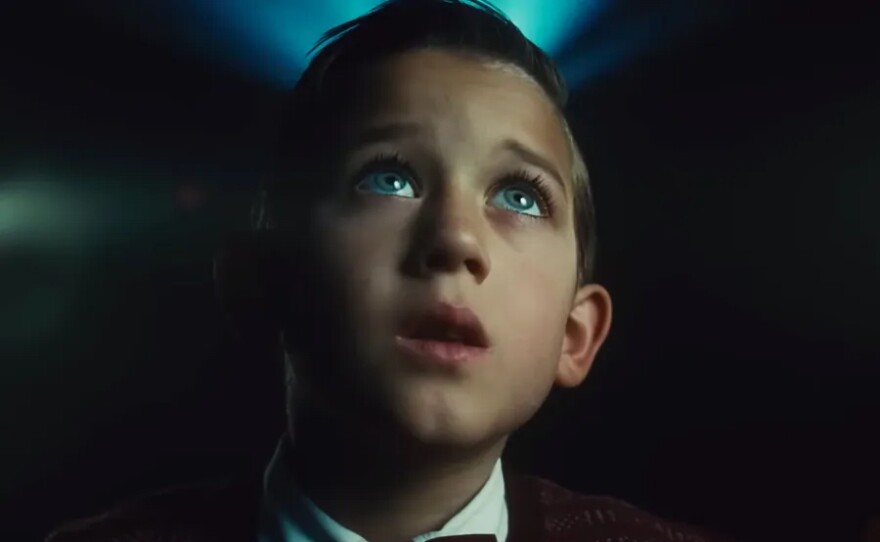It might be a little early to play Scrooge, but I feel a distinct bah-humbug reaction from two big holiday releases Hollywood dropped into cinemas over the Thanksgiving weekend: Steven Spielberg's "The Fabelmans" and Luca Guadagnino's "Bones and All."
'The Fabelmans'
"The Fabelmans" begins well. Drawing on Spielberg's own childhood, he gives us Sammy Fabelman as his screen alter ego, a young boy who starts making movies after he was traumatized by a train crash scene in "The Greatest Show on Earth."

His mother Mitzi (Michelle Williams) tells him, "We’re going to use Daddy’s camera to film it. Only crash the train once and after we get the film developed you can watch it over and over until it’s not so scary any more."
And so it begins. As Sammy (Gabriel LaBelle as a teenager) grows up, he continues to make movies and dreams of having a Hollywood career.
But for a film that is supposed to be Spielberg’s most personal life, it feels oddly distant and lacking in the kind of details we expect from an intimate, nostalgic story. This is not "Cinema Paradiso."
There is a lot of talk about art, but very little on display as Spielberg is heavy on exposition but light on insight over his own creative process. His alter ego seems driven to make films because he’s impressed at how they elicit responses from people.
Also, as a young filmmaker we mainly see him just imitating other films. That's a typical way to start and there are some delightful moments of DIY ingenuity, but he doesn't seem consumed by a passion to make films in the same way as his contemporaries Martin Scorsese and Francis Ford Coppola have expressed.
I know this is an Oscar favorite with the kind of sentimentality audiences enjoy, but it feels bland and pedantic. I don’t like to be told who a character is and why something is important, I want to discover those things. And there is no sense of discovery in "The Fabelmans."
I had the chance to see one of Spielberg's earlier short films when he was a student, and it was more insightful than this 150 minute feature film. His 1968 short, "Amblin'," which he named his company after, was about a young kid who hooks up with a girl while hitchhiking one summer.
It has a very 1960s, hippie vibe, all the way down to the guitar case he carries around. But at the end, it turns out he's carrying deodorant and a toothbrush in the guitar case, middle-class trappings that tell us he was trying to present himself as one thing and he really was something else.
It was charming and sincere and reveals something about Spielberg. "The Fabelmans" has little of that charm or sincerity.
But the film does end on a high note with a cameo by David Lynch as director John Ford. But even that is ultimately played for a cheap laugh and not as an intimate and revealing personal moment.

'Bones and All'
"Bones and All" does for cannibals what "Twilight" did for vampires ... and that’s not a compliment. Both films are based on young adult novels, and both remove the teeth from their horror roots by focusing too much on young love.
This film also has a strong beginning but then loses its way. It introduces us to Maren (Taylor Russell) who displays an unexpected hunger for human flesh.
The film calls such people eaters and suggests there is a whole subculture of them living under the radar of society. But all that fades into the background as Maren falls in love with Lee (Timothée Chalamet).
At 131 minutes, it wears out its welcome early by succumbing to an emo romance that only Timothée Chalamet fans could enjoy.
As a horror fan, I usually embrace cannibal films, but not when the horror is made palatable for mainstream audiences. Although Mark Rylance scores points as a genuinely creepy eater named Sully.
I won’t call "Bones and All" and "The Fabelmans" lumps of coal — but they're not anything I’d put on my holiday list.






